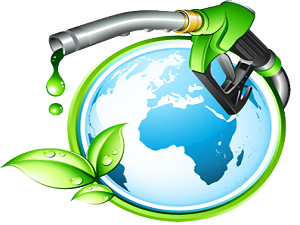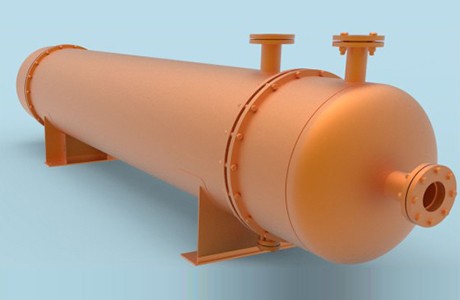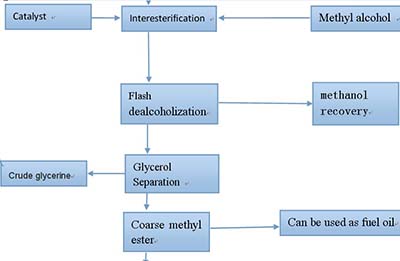Biofuels are a proven alternative to oil for transportation. Thirty percent of American fuel is already enriched with ethanol (it improves performance and reduces tailpipe emissions), and biodiesel is the fastest growing alternative fuel. The four branches of the U.S. military run their vehicles on 20% biodiesel blends (B20) at installations around the country, and … Read More
Biodiesel News
What are renewable fuels?
Renewable fuels, or “biofuels” like ethanol and biodiesel, are liquid transportation fuels made from agricultural crops like corn and soybeans. Ethanol is a clean-burning gasoline-type fuel made by fermenting grain or sugar cane into alcohol. Biodiesel is created from oil seeds (like soybeans) and waste materials like restaurant grease(how to make biodiesel? Contact us!). Both … Read More
The Process Of Waste Animal Fat Biodiesel Refining Machine
The process of waste animal fat to biodiesel here has four steps: Pre-treatment, Esterification, Trans-esterification, Biodiesel distillation. 1). pre-treatment Before esterification reaction, the raw material waste oil must be filtered, fine filtration and drying process, until we get the standard oil as raw material which has the same physical properties. 2). Esterification Esterification is mainly … Read More
Composition of waste tyre to biodiesel
Item Configuration Remark 1 Automatic feeding system Include material handling system & automatic feeding system Save time, improve work efficiency 2 Micro negative pressure pyrolysis processor Q345 boiler material, according to pressure vessel making, machine union melt welding, interior design independent gas-solid separation & isolation device, explosion proof motor, multiple spindle speed reducer With … Read More
What’s The Process of Plant Oil Conversed To Bio-diesel?
The whole process of plant oil conversed to biodiesel is closed-circuit circulation, all raw material comprehensive utilization, cleaner production. Roughly described as follows: Raw material pretreatment (dehydration, deodorization, purification )—–the reaction kettle (methyl ester+ alcohol catalyst + 70℃) —–stirring reaction N hours—-precipitation separation line of mixed alcohol—-methyl distillation—-recovery of alcohol—-methyl ester distillation—-finished product.
What Are The Biodiesel Applications?
Biodiesel can be used in pure form (B100) or may be blended with petroleum diesel at any concentration in most injection pump diesel engines. New extreme high-pressure (29,000 psi) common rail engines have strict factory limits of B5 or B20, depending on manufacturer. Biodiesel has different solvent properties than petrodiesel, and will degrade natural rubber … Read More
Biodiesel Blends Introduction
Blends of biodiesel and conventional hydrocarbon-based diesel are products most commonly distributed for use in the retail diesel fuel marketplace. Much of the world uses a system known as the “B” factor to state the amount of biodiesel in any fuel mix: * 100% biodiesel is referred to as B100 * 20% biodiesel, 80% petrodiesel … Read More
What Is Biodiesel Fuel?
Biodiesel refers to a vegetable oil – or animal fat-based diesel fuel consisting of long-chain alkyl (methyl, ethyl, or propyl) esters. Biodiesel is typically made by chemically reacting lipids (e.g., vegetable oil, soybean oil, animal fat with an alcohol producing fatty acid esters. Biodiesel is meant to be used in standard diesel engines and is … Read More
What Is A Heat Exchange?
A heat exchanger is a device used to transfer heat between one or more fluids. The fluids may be separated by a solid wall to prevent mixing or they may be in direct contact.They are widely used in space heating, refrigeration, air conditioning, power stations, chemical plants, petrochemical plants, petroleum refineries, natural-gas processing, and sewage … Read More
Biodiesel Production Processing Flow Chart
Biodiesel Production Processing Flow Chart: Product Advantages: *Core processes:With enamel reaction tower, reducing acid method of biodiesel and other countries dozen related patents; *Unique technology:The use of original turbulent pipe reactor, the reaction rate of 97%, and the reaction time is short; *Energy saving:using a unique separation integration process not only can save energy up to 60% of energy … Read More



